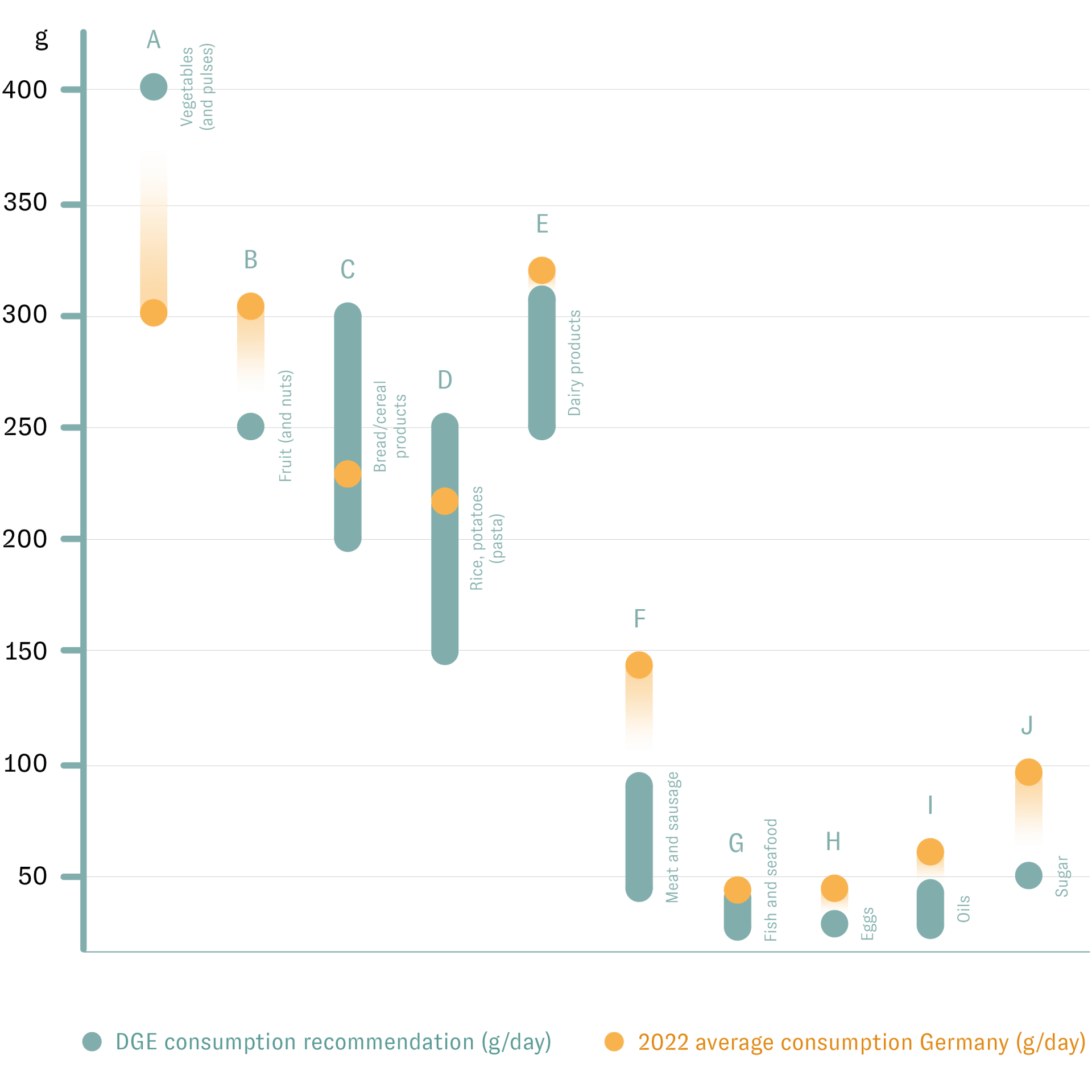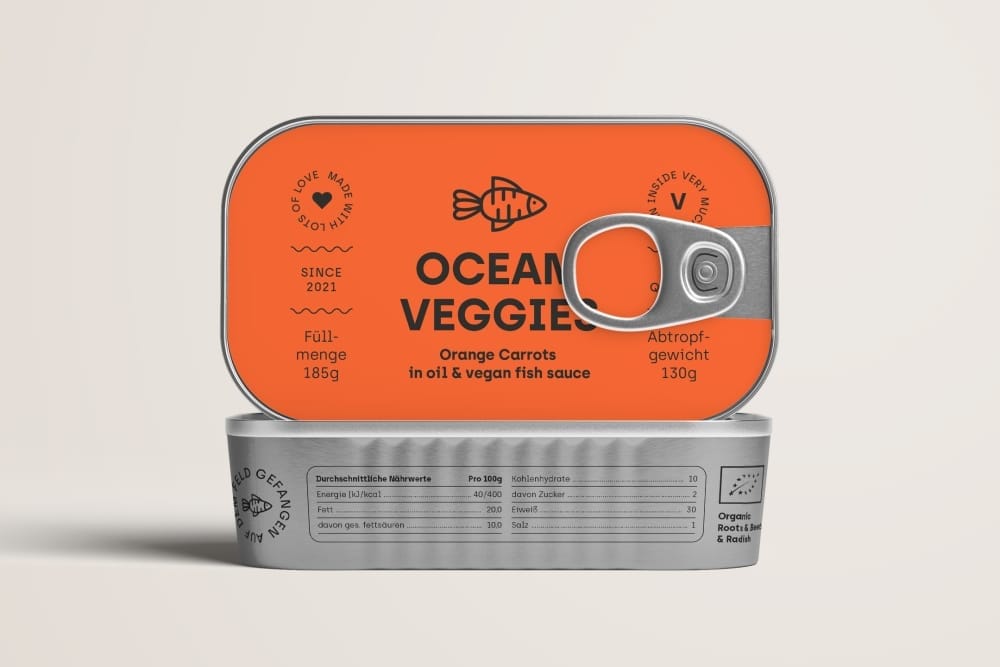Too much of a good thing?
A new study once again shows us the way to a healthy and sustainable diet. With our infographic, we want to show how far Germans are from the study’s recommendation. And what can we as an agency do to bring reality closer to the goals?
A comparison of dietary recommendations and reality

A – Vegetables and pulses: The recommendation for vegetables and pulses is 400 g/day, but consumption is only 304 g/day. This is the largest difference of 96 g.
B – Fruit and nuts: 250 g of fruit and nuts should be eaten per day, currently up to 307 g/day, which is 57 g too high.
C – Bread and cereal products: In this category, with a consumption of 235 g of the specified 200-300 g/day, the guideline value is met.
D – Rice, potatoes, (pasta): With 214 g of 150-250 g/day, the guideline values are achieved here.
E – Dairy products: The consumption of dairy products is just above the recommendation of 328 g/day from 250-310 g/day.
F – Meat and sausage: Here too, consumption is too high, with Germans consuming at least 57 g too much meat, with a recommendation of 43-86 g/day and an actual consumption of 143 g/day.
G – Fish and seafood: The guideline value is between 21 and 31 g/day; at 37 g, the amount consumed is only just above this.
H – Eggs: 26 g/day are recommended, approx. 38 g/day are consumed.
I – Oils and fats: Between 25-45 g/day should be consumed, but here too the amount consumed, at 61 g/day, is too high.
J – Sugar (added): Given the previous values, it is not surprising that the amount of added sugar consumed is also too high, at 95 g/day compared to the recommended 50 g/day. It should also be noted that this is added sugar; sugar from other foods such as fruit does not belong to this category.
German Society for Nutrition
We took a closer look at the recommendations published by the German Nutrition Society (DGE) at the beginning of 2024.
The DGE study provides guidelines for food consumption in Germany. The focus is on a balanced and sustainable diet. The recommendations are based on a daily calorie requirement of 1600-2400 kcal. However, the stated values for daily consumption do not reflect the eating habits of the German population. (see above)

Planetary Health Diet
For comparison: The Planetary Health Diet (PHD) of the EAT-Lancet Commission is an action that makes nutritional recommendations to promote health and sustainability. The load on the planet should be kept as low as possible. For the most part, this is in line with the guidelines of the German Nutrition Society (DGE). In particular, a plant-based diet and whole grain products are recommended. The DGE and PHD categories are not always the same or include similar foods. This diet is based on a daily calorie requirement of 2500 kcal, but does not take cultural or regional characteristics into account.
Use creativity to create new offers
We use our own skills as creatives and create offers that enable us to come closer to the objectives of the study. Over the past few years, our internal Food Lab has developed numerous concepts that focus on vegetables and break with old eating habits. We offer these prototypes and brand concepts to the manufacturing industry and thus accelerate change.
At the same time, we have our finger on the pulse in many consulting and design projects and try to improve the solutions of the future together with our customers. The example of these young brands shows where the founders are heading: More dough rest for the bagel and wholemeal in the range or the superfruit syrup without added sugar. These are just two of many examples that contribute to the objectives of the study.
Do you want to actively and positively shape the future with us?
Click here for our Innovation Services.
Sources:
www.dge.de/gesunde-ernaehrung/gut-essen-und-trinken/dge-empfehlungen/
www.dge.de/wissenschaft/stellungnahmen-und-fachinformationen/stellungnahmen/einordnung-der-planetary-health-diet/
www.bmel-statistik.de/ernaehrung/versorgungsbilanzen









